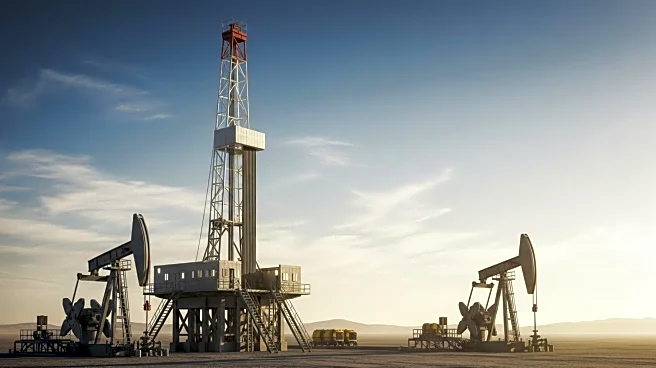What's Happening?
BP has announced the approval of its $5 billion Tiber-Guadalupe project in the Gulf of America/Mexico, which is expected to begin production in 2030. The project will feature a floating platform designed to produce 80,000 barrels of oil per day, with an estimated 350 million barrels in recoverable resources. This move aligns with BP's strategy to increase its U.S. production to over 1 million barrels a day by the end of the decade, nearly half of its global target. The U.S. market is seen as crucial for BP's strategic shift back towards oil and gas, moving away from renewable energy. This decision comes as President Trump supports increased investment in oil and gas, while reducing focus on renewable energy projects.
Why It's Important?
The approval of the Tiber-Guadalupe project signifies BP's commitment to expanding its oil and gas operations in the U.S., a key market for the company. This move could have significant implications for the U.S. energy sector, potentially increasing domestic oil production and influencing global oil markets. The project also reflects a broader industry trend where major oil companies are balancing between traditional fossil fuels and renewable energy investments. BP's decision may impact its competitive positioning against other energy giants like TotalEnergies and Shell, which are also navigating similar strategic shifts.
What's Next?
As BP progresses with the Tiber-Guadalupe project, it will likely face scrutiny from environmental groups and policymakers concerned about the environmental impact of increased oil production. The project’s development will be closely watched by industry analysts and investors, as it could set a precedent for future oil and gas projects in the region. Additionally, BP's strategic focus on the U.S. market may prompt other companies to reassess their investment strategies in the country.









